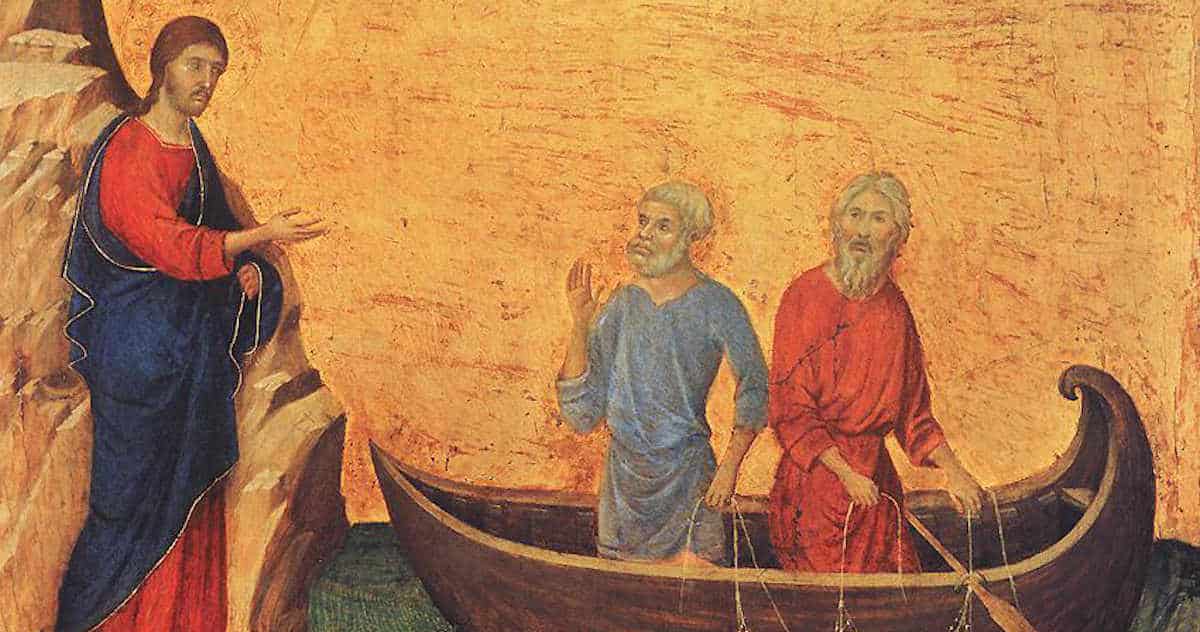
Traditionally, there have been many graphic and telling images used in Scripture and theology to speak about the nature and function of the Church: body, temple, mother, vine, family, pillar, people, bride, and so forth. And, undoubtedly, this kind of imagery is highly evocative and has shaped in a definitive way the perspective, emotionality and behaviour of the faithful throughout the centuries. This discourse is poetic, beautiful and significant in itself, but is it enough? Is this enough to understand what the Church is all about?
What I am implying here is that all these images presuppose and entail a fundamental condition of Christian being that allows and enables the Church to become what it has been called to accomplish in time and space. In other words, the be(com)ing of the Church within and as history is intrinsically related to the calling of the Church, and this calling is about the mission that the Church has been intrusted with. My contention, furthermore, is that what Orthodoxy is supposed to and, for that matter, should strive for is to realise the Church as a mission in the world; a mission impossible, humanly speaking, but this is exactly where the power of the Spirit comes into the whole picture…
What Is and What Is Not the Mission of the Church
The Orthodox Church has a mission that, simply put, is impossible! The Jesus calling, that is, the calling from and to Jesus, that constitutes the Church is impossible to come to fruition – at least, in total fruition, for it is sustained by an insurmountable paradox. More specifically, the Church is called to be(come) the voice, action and presence of the Lord in the world by turning the world into an ecclesia.
However the Church is not of the world and will always be against the (spirit of the) world. How can we make an ecclesia out of the world, when these are opposed to one another in a contradictory manner? They may stick together dialectically, but this can only mean that the tension between them will go on and on without any kind of resolution; the mission will still remain... impossible!
But that is the whole point! The mission has to be impossible, otherwise the Church would cease being inherently an ongoing and open-ended calling and would turn into an accomplished and given reality; everything would just be the opposite way of what Jesus promised, and the entire Gospel would be turned upside-down. In a nutshell, Jesus would have failed through this seemingly successful outcome…
The mission of the Church is not to be yet another religion amongst the thousands of religious groups and organisations all over the world. The mission of the Church is not to be yet another social service amongst the millions of such projects delivered by the public or the private sector. The mission of the Church is not to be the bearer of yet another ideology, philosophy or big truth/narrative that claims to explain the universe and the human predicament. The mission of the Church is not to be the medicine, treatment or even meaning that would make people feel healthier, better or more satisfied with their selves and lives. If any of these were the case, then the mission of the Church would be something quite possible; possible, of course, but not commensurable with the love and sacrifice of God…
The mission of the Church is to turn the unbearable historical absence of Jesus into the presence of His deifying grace. The mission of the Church is to become the victim of history par excellence so that the millions of victims may get a glimpse of the face of God here and now. The mission of the Church is to turn the disparate and lifeless words of the world into the unifying and living Word of God. The mission of the Church is to save the people by making them entrust themselves to the love of the suffering yet rejoicing God. But this is a mission impossible; yet the only mission worthy of Jesus!

Thyself as the Greatest Enemy
The greatest problem for the Orthodox Church in discerning its calling and mission nowadays is most likely what constitutes its greatest strength, namely, the series of its embodiments in history. These embodiments – some more so and some less – are cherished and revered instances of Church be(com)ing from the past that naturally function as guiding examples for the present and the future. However, the Orthodox faithful tend to absolutise them – thus absolutising history itself – and regard them as making up tradition, whereas it is tradition as the irruption of the future Eschaton that makes them what they truly are. This means that whatever the significance of these embodiments (liturgical, patristic, ascetical, canonical, and more generally habitual) as performative realisations of the Orthodox faith in the past, they cannot and should not be utilised in a copy-paste fashion in the present.
Otherwise, the means gets confused with the end, the embodiment is mistaken for the embodied, the signifying is not properly distinguished from the signified, and as a consequence the mission/calling of the Church remains buried under the heaps of ways in which it was attempted, pursued or achieved in specific socio-historical conditions. But the latter have changed, and if our contemporary embodiments of faith don’t change as well, then the mission/calling of the Church cannot stay the same unto the ages of ages…

Time to Free Ourselves from the Idols of the Past
The Orthodox Church must liberate itself from its Byzantinism, its identification with the Nation-State, its anti-historicism and, last but not least, its secularist failings. In these times, with all their sensitivities and enhanced humanitarian awareness, the Orthodox Church should know better and that war is not the way of the Lord; that it must show to the whole world that the force by which the Kingdom of God is taken involves one’s everyday struggle against all forms of injustice. We should have been so Church-minded by now as to recognise that if our ways are to be the salt and the light of the earth, they must exceed by far the ways of the non-Orthodox.
By the same token, the entanglement of Orthodoxy with this or that nationalist sentiment must come to an end. In the past it might have served in the advancement and formulation of the Nation-State along the lines of this or that Christian embodiment, but nowadays the only purpose it serves is to obfuscate the primacy, exclusiveness and radical commitment of faith. On the other hand, many a time in the past Orthodoxy has gone through phases of withdrawal from historical challenges by opting for a quietist mentality, undermining in this way the tangible humanity of people.
This is not acceptable anymore for it runs against the very notion of mission.
As for the secularist failings of the Church, I believe that it’s only a travesty of the engagement that the mission/calling of the Church stands for no Church can be a Church by adhering to the Zeitgeist of the times instead of following in the footsteps of its Lord.
An Impossible God for an Impossible Mission!
To discern the mission of the Orthodox Church and, for that matter, to realise its calling has come to be the most challenging and daunting task of the Church in our times. It presupposes a most radical outlook as to discipleship and it can only be satisfied by a utopian demand; a demand that searches after the impossible, trusting everything to the power, the providence and the love of a God who is Himself impossible!
ABOUT | INSIGHTS INTO GLOBAL ORTHODOXY with Dr Vassilis Adrahtas
"Insights into Global Orthodoxy" is a weekly column that features opinion articles that on the one hand capture the pulse of global Orthodoxy from the perspective of local sensitivities, needs and/or limitations, and on the other hand delve into the local pragmatics and significance of Orthodoxy in light of global trends and prerogatives.
Dr Vassilis Adrahtas holds a PhD in Studies in Religion (USyd) and a PhD in the Sociology of Religion (Panteion). He has taught at several universities in Australia and overseas. Since 2015 he has been teaching ancient Greek Religion and Myth at the University of New South Wales and Islamic Studies at Western Sydney University. He has published ten books. He has extensive experience in the print media as editor-in-chief, and columnist, and for a while he worked as a radio producer. He lives in Sydney, Australia, his birthplace.


